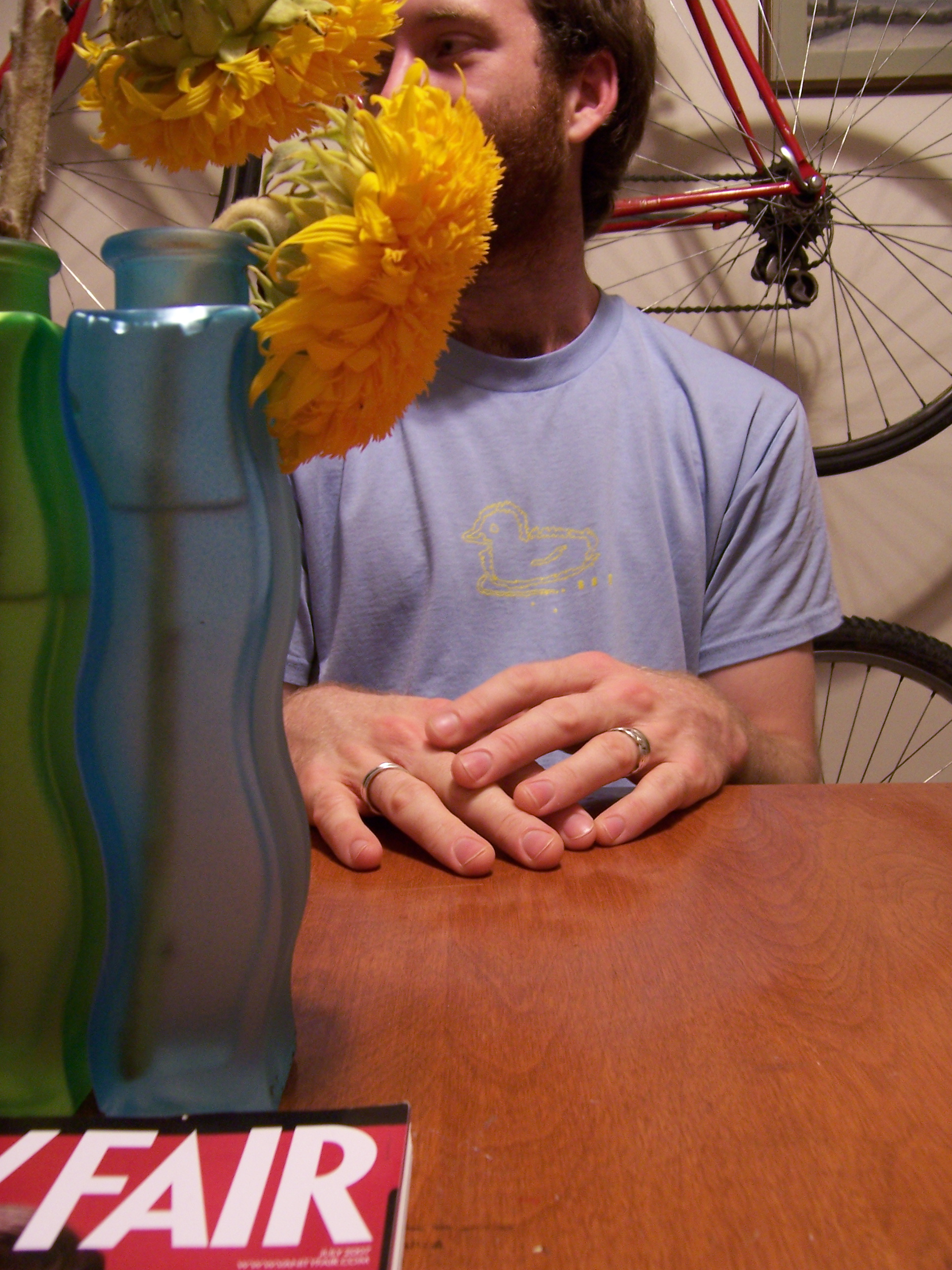Bear Witness as I Experience My First Time...
Travis Griffith
 It seems we’re born into a world where everyone is blind.
It seems we’re born into a world where everyone is blind.
We don’t know who we are; so we search, arms outstretched, wandering, hoping we run into some form of ourselves that might know the answers.
It’s during that journey through the darkness that many people turn to religion.
Religion provides millions of people with the answers they seek, but for countless others it only raises more questions that outweigh the faith required to believe.
My journey is about to take a turn that every fiber of my being tells me not to follow. And I’m going to need your help.
First, though, a little history.
I spent the first 28 years of my life staunchly opposed to the idea of God and dismissed Christianity, along with all other religions, as mythical stories believed only by the weak-minded.
Then, about six years ago, some things began to happen that jolted my perception of the spiritual realm; things that seem unreal when I look back at them today. Eventually those experiences opened some new paths in my life, one of which led to the Relief Journal.
It’s been about two years since my first blog at Relief and I’ve contributed sporadically since then. Just recently I had the opportunity to take the blog manager position here, which I humbly accepted.
Many people, including myself, find this more than ironic considering my anti-Christian past. I still don’t label myself a Christian, but I am highly spiritual and have developed a deep respect for all religions, including Christianity.
After accepting the position here, a friend posed a resounding and poignant question. She said, “You don’t comment on movies you haven’t seen, right? How can you comment on a religion when you haven’t read its book?”
Well… shit. I didn’t have an answer. At least not a good one.
While I love being right, I’m certainly not opposed to admitting when I’ve been called out. That was a moment I had my legs swept from beneath me and I could only raise the white flag of defeat while acknowledging she had one hell of a good point.
So I decided I should read the Bible.
You have to understand that if I had the choice between getting caught by someone while secretly reading the Bible or watching porn involving transvestite grandmas with Spanish men, I’d choose the porn every time. There’s not as much shame involved.
I’ve thrown at least two Bibles in the garbage and even seriously considered burning the insanely expensive one we got for our wedding just to see those pathetically thin pages go up in flames.
And so I’ve gone from that closed-minded attitude of years past to openly committing to read the Bible, in its entirety. Even writing those words causes my blood pressure to rise, though I’m not sure if it’s out of embarrassment, because I’m fundamentally opposed to the book or just afraid of what I might find in it.
I’ll start on May 2 and, as my editors here requested, try to finish on July 30. That’s only 90 days, and I’ll try, but make no promises! I do promise to document my progress and express my thoughts and reactions to the book in this space. I expect some of it will piss me off, some will make me laugh, some will cause me to shake my head in disbelief and some, hopefully, will resonate with messages of pure, unconditional love.
At least a couple of Relief staffers have committed to read during the same time, and I hope you will too. I could use the help with my questions, have you take part in the comments and hopefully get inspiration from your reactions as you witness a guy experiencing the Bible for the first time.
Any tips for a Bible virgin?
***
Travis Griffith, Relief's Blog Manager, is a former atheist now exploring what a spiritual life really means. His children’s book, Your Father Forever, was published in 2005 by Illumination Arts Publishing Company, Inc. Travis works from his home in Spokane, WA as a professional writer.








